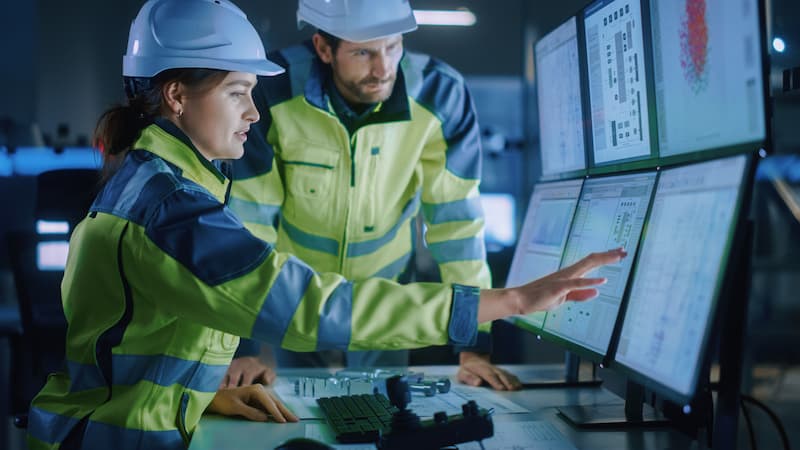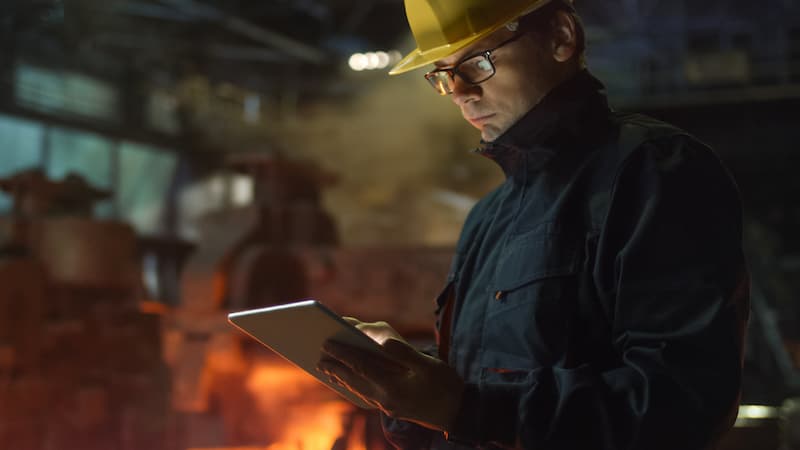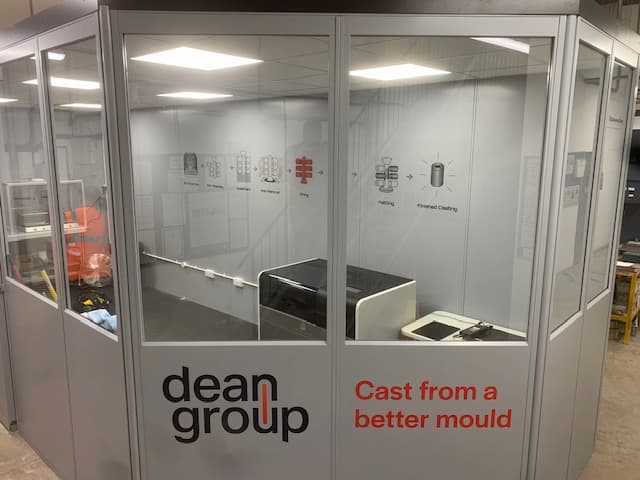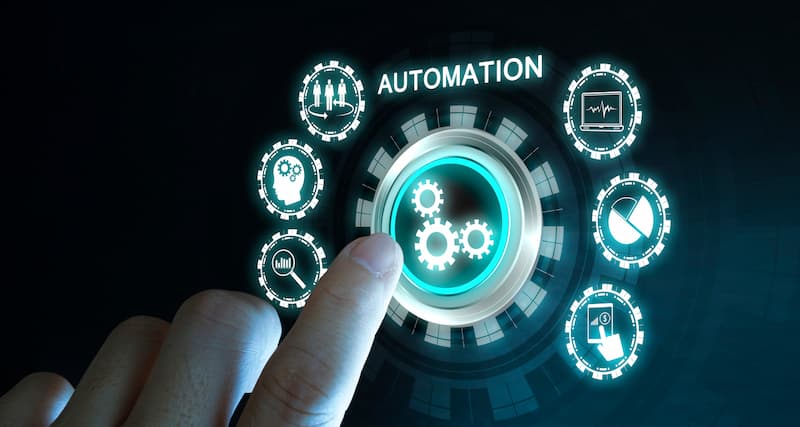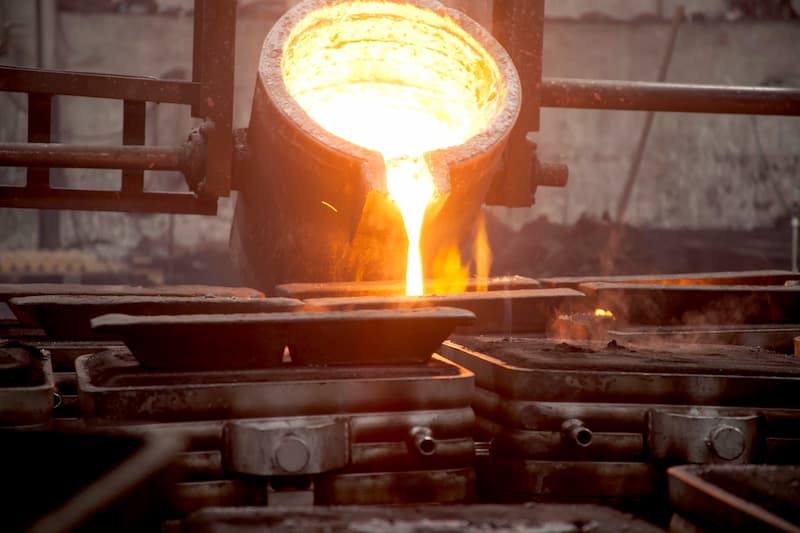The Future of Manufacturing
The UK manufacturing industry has a rich history of innovation and progress from the Industrial Revolution to today. The industry is constantly evolving and adapting with new technologies and processes emerging to meet client demands and recent industry trends. Read on to discover the predicted changes for the industry and how they will dictate the future of manufacturing in the UK.
An Increase In Digital Processes
Computer-controlled machinery is already a well-established element in manufacturing as it has improved many processes with its increased accuracy, efficiency and reliability. This proven success encouraged companies to explore additional areas where computer technology will improve existing processes. This goal is predicted to dominate the future of investment castings and has led to the start of a new digital revolution named the fourth industrial revolution.
What is the 4th Industrial Revolution?
The fourth industrial revolution, also known as Industry 4.0, is a term used to describe the current trend of automation and data exchange in manufacturing technologies.
Integrating cyber-physical systems, the Internet of Things (IoT), and cloud computing allows for real-time communication between machines, devices, and humans, creating a network of interconnected systems that work together seamlessly.
Process Optimisation
Metal casting foundries optimise their operations by using data from sensors and other sources to identify inefficiencies and potential issues before they occur. By doing so, they can take initiative-taking measures to improve efficiency and reduce costs, resulting in a more sustainable and profitable business.
Stronger Supply Chains
The fourth industrial revolution also has implications for the supply chains connected to manufacturing. These constantly updating systems allow for greater transparency and collaboration across these essential supply chains up and downstream from manufacturers. As a result, more efficient and cost-effective supply chains and improved customer satisfaction and loyalty are created.
Furthermore, safeguarding your supply chain is one of the primary focuses of the future of manufacturing as a direct response to the recent highly disruptive international events such as the covid pandemic and Russia’s continuing war in Ukraine, and the tools within this revolution are vital to achieving that.
The 4th industrial revolution represents a significant opportunity for metal casting foundries to improve operations, reduce costs, and grow in an increasingly competitive market.
3D Printed Prototypes
3D wax printing for metal casting is an advanced process that relies on computer technology and will be the future of prototyping in manufacturing. method3D wax printing involves using a digital model to create a rapid wax prototype in our printing room, which is then analysed and re-assessed as part of a testing stage before committing to tooling and casting.
3D wax printing for rapid prototyping uses a digital model, which is quickly created using our 3D printing technology with high precision and accuracy that genuinely conveys what the final design would look like.
This method offers many benefits over conventional prototyping methods, including faster lead times, reduced costs, and the ability to create complex geometries that would be difficult or impossible to achieve with traditional methods.
The ability to create prototypes quickly and affordably allows for design changes before release and direct comparison testing of alternative design concepts, ultimately reducing the development costs of products.
As such, 3D wax printing for rapid prototyping is predicted to be an increasingly popular investment for manufacturers.
AI Automated Operations
Automation with the fourth industrial revolution has already created a network of interconnected systems that work together seamlessly, resulting in a more efficient and productive manufacturing process. Still, Artificial intelligence is set to improve them further.
AI will be crucial to improving automated operations within manufacturing in the future. Integrating AI into existing manufacturing processes will increase current automation's accuracy, adaptability and capabilities as we create more robust real-time communication between machines, monitoring computers, and staff.
Improved Quality Control Monitoring
AI will analyse data from sensors and other sources, identify patterns, and predict potential issues before they occur. This allows for initiative-taking maintenance, reducing downtime and improving efficiency.
AI will help to optimise manufacturing processes by identifying inefficiencies and providing insights into how they can be improved. These benefits will lead to cost savings, increased productivity, and improved quality control.
Upskilling Experienced Engineers
Increasing repetitive tasks will be automated thanks to AI’s powerful capabilities, such as quality control inspections through camera and sensor monitoring. Managers can reallocate experienced engineers by automating more processes to focus on more complex and value-added tasks.
Improved Inventory Management
AI is also predicted to be used heavily to improve inventory management and supply chain logistics, ensuring that the suitable materials are available at the right time. In addition, these future systems will be able to predict what materials manufacturers will need and assist with sourcing them to reduce initial lead times significantly.
Faster lead times, higher quality products, and reduced waste are all possible with the future implementation of AI into existing automated systems. It will also allow manufacturers to stay ahead of the competition with an increasingly detailed and accurate analysis of daily processes to prevent potential issues before they occur.
Dean Group: UK-Based Investment Casting
At Dean Group, we are proud to be at the forefront of the future of metal casting as a family-run UK metal foundry with over half a century of experience. We prioritise investment casting to provide a reliable and effective service that guarantees high-quality results for premium and commercial-grade work.
Our investment casting process is one of the most advanced in the industry, using cutting-edge technology and innovative methods to produce the best possible results. We are dedicated to staying ahead of the curve, embracing new technologies and techniques that allow us to improve the efficiency and quality of our casting services.
Contact us to discuss how our advanced prototyping and casting services will benefit your applications.
Registered in England VAT No: 146307478 Company Registration No: 1062820


